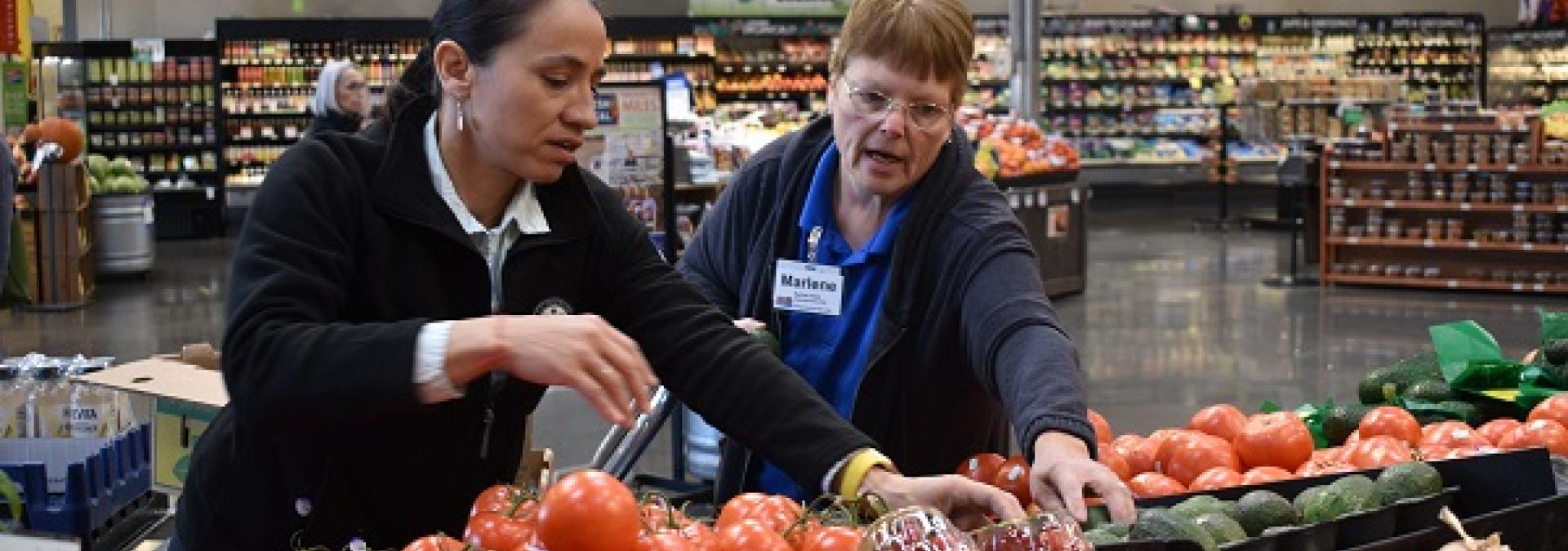Davids Helps Introduce Bipartisan Bill to Lower Grocery Costs, Prevent Foreign Influence by Securing Agriculture Supply Chains

This week, Representative Sharice Davids helped introduced bipartisan legislation to protect America's food and agriculture supply chain, preventing disruptions that inflate grocery costs. With supply chain issues exacerbated by COVID-19 and the Russia-Ukraine conflict, rising grocery prices continue to be a main concern for hardworking families. The legislation addresses China's growing influence in critical agricultural sectors, aiming to maintain America’s access to key inputs, sustain agricultural productivity, and secure domestic food security.
“During the pandemic, supply chain disruptions and reliance on foreign-made goods led to higher grocery prices and uncertainty for the farmers and producers in Kansas who contribute to our state’s largest economic engine,” said Davids. “Despite recent progress in strengthening our supply chains, grocery costs still must come down for hardworking families. The Securing American Agriculture Act is another bipartisan step toward lowering those prices and building an economy that works for everyone, especially for the middle- and working-classes.”
American farmers provide the world's safest and largest food supply, using agricultural tools to boost farming efficiency, fight disease and drought, and sustain the environment. However, China's growing dominance over these tools threatens our national security. The bipartisan Securing American Agriculture Act:
- Requires the United States Department of Agriculture (USDA) to conduct an annual assessment to evaluate:
- American critical agricultural input supply chains that could be exploited by the People’s Republic of China (PRC);
- Current domestic production capacity for specified critical inputs;
- Current and potential bottlenecks in the food and agriculture supply chain.
- Requires the Secretary of Agriculture to provide recommendations to mitigate potential threats from the People’s Republic of China and for legislative and regulatory actions to reduce barriers to domestic critical input production.
While our economy is experiencing record job creation, the cost of groceries remains high. To help lower those costs, Davids, who was named a "Champion of the Shippers," has worked to shore up our domestic supply chains, which eases inflationary pressures for Kansans. Davids’ additional work to lower grocery costs and strengthen supply chains include:
- Voting to pass the Lower Food and Fuel Costs Act to shore up the food and agriculture supply chain, assure fair competition in the meat and poultry sectors, and lower food and gasoline costs.
- Holding multipleroundtables with Kansas business, manufacturing, and technology leaders on how recent legislation to improve supply chains will help boost their businesses' financial security.
- Cosponsoring the Ocean Shipping Reform Act, a new law aimed at addressing supply chain snags and reducing dependence on goods produced outside of the United States.
- Meeting with President Biden at the White House to urge him to pass a supply chain and economic package that invests in American manufacturing.
- Working a "Sharice's Shift" at a local Price Chopper, where she helped store employees unload deliveries from shipping trucks, stock grocery shelves, and bag groceries.
As a member of the U.S. House Agriculture Committee, Davids is also working to craft a bipartisan Farm Bill that supports Kansas farmers and lowers costs, including by securing agricultural supply chains to keep costs low and support our state’s largest economic sector. Davids recently hosted USDA Deputy Secretary Xochitl Torres Small, Senator Pat Roberts, and other policymakers to discuss the successes and challenges of Kansas’ farmers and producers.
WATCH: Davids inquires about the USDA’s efforts to lower grocery costs for Kansas families
Davids previously hosted USDA Under Secretary Jenny Lester Moffitt to highlight lowering costs for processing, packaging, and consumer purchasing of locally sourced meats. She also joined other Kansas lawmakers in a bipartisan push for investigations into anti-competitive behavior in the meatpacking industry.